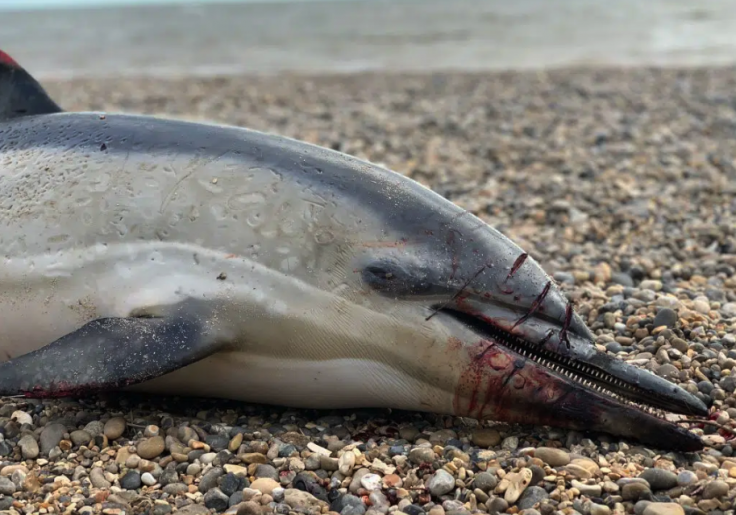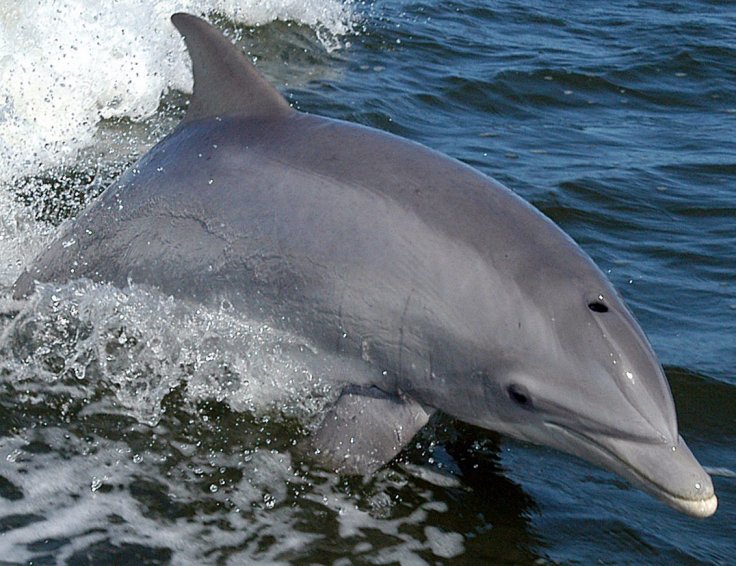The Russia-Ukraine war has not only claimed the lives of thousands of men, women and children but the warfare, which started in February, has also resulted in hundreds of dolphins and porpoises dying in the Black Sea.
As reported by Business Insider, scientists who study the region reported an "unusual increase" in strandings and bycatch — when animals are unintentionally caught by fishermen — of dolphins, porpoises, and whales, in the spring and summer of 2022, according to a recent report from ACCOBAMS, or the Agreement on the Conservation of Cetaceans of the Black Sea, Mediterranean Sea, and Contiguous Atlantic Area.

Warfare Affects Cripples Dolphins' Ability to Navigate, Find Food, Communicate
"Russia's war against Ukraine escalated in February 2022 puts the entire Black Sea basin under a huge threat. Military activities in the marine and coastal areas may affect the marine biota in the region, including cetaceans," the report said.
More than 700 deaths, primarily in dolphins and harbor porpoises, have been recorded on the coasts of countries that border the sea, including Bulgaria, Romania, Turkey, and Ukraine, according to Erich Hoyt, a research fellow at the UK-based Whale and Dolphin Conservation who consulted with the ACCOBAMS scientists.
Researchers are working to determine the cause of the deaths that have been observed, but the ongoing war — and the potential threat posed by drifting mines — make data collection and boat surveys difficult.
There have been reports of dolphins washing ashore with physical injuries, like burns, which could be a direct result of being caught in the crossfire. Ivan Rusev, research director at Ukraine's Tuzla Estuaries National Nature Park, said earlier this year dolphins were washing ashore with burn marks from bombs or mines, while others appeared unable to navigate or like they had not eaten in days.
But the increase in strandings and dolphins caught in bycatch could be a direct consequence of the loud noises associated with warfare.
Dolphins Rely on Sound to Map Out Environment

"Dolphins and porpoises rely on sound to navigate, find their food, and communicate with each other," Hoyt told Insider. "Noise from increased ship traffic can have some impact but the sounds of explosions at the surface or underwater could disorient, wound, or kill dolphins and porpoises within a few mile range or cause increased numbers of strandings or bycatch."
Dolphins, porpoises, and whales have an acute sense of hearing and use echolocation to map out their environment. They emit short, pulsing "clicks," similar to a finger snapping, which travel through the water until they encounter an object and bounce back to the dolphin. But the dolphin's uncanny ability to interpret the returning sound to identify food and understand their environment can be disrupted by loud noises.
Dolphins also use sound, similar to a whistle, to communicate with each other, and have even been documented using verbal labels to address one another — in a word: names.
Sounds also travel much further and about four and half times faster through water than air, making the impact of explosions in the sea all the more damaging.
Though scientists are working to confirm the reasons for the increased deaths, Hoyt said the noise disruptions could be disorienting the dolphins, leading to an increase in them getting stranded on shore or caught in a fisherman's net.









